Search Engine Optimisation, or SEO, is the powerhouse of online visibility and business growth. It’s the art and science of optimising your online presence to rank higher in search engine results. Think about it – when was the last time you searched for a product or service online? Probably not too long ago. Well, you’re not alone. Millions of people turn to search engines like Google every day to find answers, products, and services.
Now, why does search engine marketing matter so much? Let’s say you have a fantastic website with top-notch products and content, but it’s buried on page 5 of search results. Chances are, your potential customers won’t even know you exist! That’s where SEO comes in to save the day… Search engine optimisation helps you make your digital presence known to search engines and, in turn, to your target audience.
SEO can boost your website’s organic traffic, increase brand awareness, and ultimately drive valuable conversions. Plus, the best part is that it works for businesses of all sizes – from small local shops to international enterprises.
Understanding the basics of search engine optimisation
Picture this: you have a fantastic website with top-notch content and products, but it’s hiding in the dark corners of the internet, far from the eyes of your potential customers. SEO is like a spotlight that illuminates your website, making it easier for search engines like Google to find, index, and present it to users looking for what you offer.
Search engine marketing isn’t just a single trick that works wonders overnight, though. It’s a combination of carefully crafted strategies, technical tweaks, and understanding how search engines work. There are two primary aspects of search engine optimisation that we need to talk about: on-page SEO and off-page SEO, and you need to understand both before diving into implementation.
On-page and off-page factors
On-page optimisation is all about adapting your website’s content and structure so that search engines understand what your site is all about. It’s like laying out a clear roadmap for search engine crawlers to follow. You achieve this by strategically placing relevant keywords in your content, meta tags, and headings. But remember, it’s not about stuffing keywords everywhere like confetti at a party. It’s about using them naturally and creating valuable, engaging content for your audience.
Off-page SEO focuses on building your website’s authority and online reputation across the vast expanse of the internet. One of the most crucial factors here is backlinks – those little endorsements from other websites that vouch for your credibility. Gaining backlinks from authoritative and relevant websites works wonders for your rankings.
Keyword research and its role in SEO
Let’s talk about the heart and soul of search engine marketing: keyword research. It’s like being a detective, trying to figure out what words and phrases your potential customers are typing into those search bars. With the right keywords in your arsenal, you’ll be able to tailor your content and website to match what users are actively looking for. That’s the key to being visible in search results.
But hold on, it’s not just about stuffing a bunch of popular keywords into your content. Your keywords need to be relevant to your business and align with the intent of your audience. So, put yourself in your customers’ shoes and think about what they’re searching for – that’s the golden ticket to successful keyword research.
SEO in online marketing isn’t a one-time thing. It’s a journey of constant learning and adaptation. Search engines, especially Google, love to keep us on our toes with their ever-changing algorithms. What worked yesterday might not work today, so staying updated with the latest search engine optimisation trends and best practices is crucial.
Conducting a website audit
A comprehensive website SEO audit is like a health checkup for your website, where you’ll uncover any issues that might be holding you back. This critical step helps you identify any areas that need improvement, such as website structure, speed, and mobile-friendliness. Fixing these issues will set you up for success.
First things first, why do you need a website audit? Imagine you’ve got this fantastic website, but it’s not attracting as many visitors as you’d like. Something seems off, right? That’s where an SEO site audit comes in handy. It helps you identify what’s working, what’s not, and how you can improve your website’s performance to climb the search engine ranks.
Assessing your website’s structure, speed, and user experience
So, where do we start? Step one: put on your detective hat and take a good look at your website’s structure and user experience. How easily can visitors navigate your site? Is it intuitive and user-friendly? You want to make sure your website is a smooth ride for your users, keeping them engaged and happy.
Let’s talk about the need for speed – website speed, that is. Slow-loading pages are a big no-no in the world of search engine ranking. Nobody likes to wait around for a website to load like it’s stuck in the slow lane during rush hour. And mobile-friendliness is more critical than ever. With most people browsing the web on their smartphones, you need to ensure your website looks and functions flawlessly on mobile devices.
Identifying and fixing technical SEO issues
Next up is the nitty-gritty of technical search engine optimisation. An audit does a deep dive into your website’s technical aspects to make sure everything is ship-shape. This includes checking for crawl errors, broken links, and any other technical gremlins that might be hiding in the code. Speaking of code, have you heard of structured data and schema markup? It’s like a secret code that search engines use to understand your website better.
An audit checks to see if your website is speaking the search engine language fluently, so your content can appear in those fancy rich snippets and Knowledge Graphs. Oh, and one more thing – duplicate content. It’s like having an evil twin running around the internet, confusing search engines and hurting your rankings. You have to root out any duplicate content issues that might be lurking on your website.
Creating SEO-optimised content
High-quality content, infused with strategically chosen keywords, is a recipe for SEO success in the ever-changing landscape of search engines. But, before you start typing away furiously, take a moment to think about your target audience. Who are they? What are they searching for? Understanding your audience’s needs and preferences is the compass that will guide your content creation journey
Keyword research is like the treasure hunt of the digital realm. We’re on a mission to find those golden keywords that align perfectly with what your audience is searching for. These keywords will help you tailor your content and make it more discoverable by search engines. But don’t go overboard with keywords (keyword stuffing is so yesterday). Instead, focus on incorporating those keywords naturally and strategically into your content.
And don’t forget about the power of headings. Headings not only break up your content and make it easier to read, but they also act as signposts for search engines. Sprinkle those keywords into your headings, and you’ve got yourself a roadmap that leads search engines right to your content gold mine. It’s all about creating valuable, relevant content that reads like a smooth conversation with your audience.
High-quality SEO-friendly content
Meta tags are the hero of SEO-optimised content. Meta titles and meta descriptions are your website’s first impression on the search engine results page. Craft compelling meta tags that not only include your keywords but also entice users to click through and explore your content further.
Visual content is also important in the search engine marketing world. People love visuals, and so do search engines. Incorporating images, videos, and infographics not only makes your content more engaging but also signals to search engines that you’re offering valuable, diverse content.
One last thing – make your content shareable. Social media shares and backlinks from other websites are like little votes of confidence for your content. The more shares and backlinks you have, the more search engines will view your content as valuable and worthy of a higher ranking.
Building high-quality backlinks
Backlinks are endorsements from other websites and they can significantly impact your website’s authority and rankings. Imagine each backlink as a virtual vote of confidence from one website to another. When a reputable website links to yours, it’s like a pat on the back, signalling to search engines that your content is top-notch and worth exploring.
But not all backlinks are created equal. Quality is the name of the game here. One high-quality backlink from an authoritative website can do wonders for your SEO efforts, while a bunch of low-quality links can lead you down a dark and treacherous path. How do we build these shiny, high-quality backlinks? Start with the art of outreach. Reach out to other websites in your niche or industry, and showcase your amazing content or resources.
Guest posting is another powerful tool in your link-building arsenal. Share your expertise with other websites by writing guest posts – it’s a win-win situation. You get exposure to a new audience, and they get valuable content to share with their readers. Just remember to keep it genuine and focus on providing value rather than just stuffing links. Teaming up with other content creators, influencers, or businesses can also lead to some fantastic link-building opportunities.
Content collaborations are like a digital handshake that opens doors to link possibilities you never thought possible. Building local connections is crucial too, especially if you have a physical business presence. Partner with local organisations, join community events, and support local causes. These connections can lead to valuable backlinks from local directories and websites, giving your local search engine optimisation a well-deserved boost.
Remember, it’s not just about getting as many backlinks as possible. Relevance is key. Aim for backlinks from websites that are closely related to your niche or industry. Think of it as building a network of like-minded websites that vouch for your expertise and credibility.
But, don’t forget the most crucial ingredient – valuable content. When you consistently produce valuable and shareable content, other websites will naturally link to it. Each high-quality backlink you earn is like a boost in your website’s reputation, making search engines want to show off your content to the world.
Leveraging social media for SEO
Not many people know you can leverage social media to complement your search engine marketing efforts. It’s a dynamic duo that can enhance your online visibility and engagement, so don’t underestimate its potential. Social media is like a megaphone for your content. When you share your blog posts, articles, or product pages on social platforms, you’re amplifying their reach and inviting engagement from your audience.
Now, you might ask – does social media marketing directly impact search engine rankings? Well, it’s not a direct ranking factor, but it does indirectly influence SEO in several ways. Let’s break it down:
- Increased website traffic: When you share your content on social media, you’re enticing your followers to click through and explore your website. More website traffic sends positive signals to search engines, hinting that your content is valuable and worth showing to others.
- Social signals: Social media engagement, such as likes, shares, comments, and retweets, are like little breadcrumbs that indicate your content’s popularity and relevance. Search engines pay attention to these social signals, and they can positively impact your search rankings.
- Brand awareness: Social media is a fantastic platform to build your brand identity and create a loyal community of followers. When people recognise and trust your brand, they’re more likely to mention or link to your website – another search engine optimisation boost
Let’s talk about the best ways to leverage social media for SEO:
- Optimise your profiles: Treat your social media profiles like mini landing pages for your brand. Use relevant keywords, include a clear and engaging bio, and provide a link to your website. Remember, consistency across all your social profiles is key.
- Share engaging content: Create content that sparks conversations and encourages sharing. Visual content, such as images and videos, tend to perform exceptionally well on social media. Engage with your audience, respond to comments, and be genuinely social!
- Social media sharing buttons: Make it easy for your website visitors to share your content on social media by adding social sharing buttons. The more shares, the more eyes on your content, and the more potential backlinks you might earn.
- Build relationships: Engage with influencers and industry leaders in your niche. Building relationships can lead to valuable collaborations, mentions, and even backlinks, all of which contribute to your search engine marketing efforts.
- Monitor your social metrics: Keep an eye on your social media performance using analytics tools. Understand what content resonates with your audience, when they’re most active, and adjust your social media strategy accordingly.
Remember, social media and SEO go hand in hand. By leveraging social media platforms effectively, you’ll not only amplify your content’s reach but also strengthen your website’s authority in the eyes of search engines.
Local SEO strategies
If you have a brick-and-mortar presence or cater to specific local markets, local search engine optimisation strategies can help you boost your online visibility, dominate local search results, and attract customers right to your door. Think about those times you’ve searched for a nearby coffee shop or a reliable plumber. Leveraging Local SEO is all about optimising your online presence to appear in those local search results when someone is looking for products or services in their vicinity.
So, here’s what you need to focus on:
- Google My Business (GMB) optimisation: If you haven’t claimed your Google My Business listing yet, stop everything and do it now! Fill out all the essential information – your business name, address, phone number, and operating hours. Add high-quality photos and encourage customers to leave online reviews.
- Local keyword research: Conduct local keyword research to identify search terms specific to your area. Use these keywords in your website content, meta tags, and GMB profile to boost your local search rankings.
- Localise your website content: Tailor your website content to target local audiences. Create location-specific landing pages or service areas to showcase your expertise in different regions. Mention nearby landmarks and neighbourhoods in your content – it helps search engines understand your local relevance.
- Online citations and directories: Online directories and citations are like the digital version of the Yellow Pages. Ensure your business information (NAP – Name, Address, Phone number) is consistent across all directories, like Yelp, Yellowpages, and local chamber of commerce websites. It boosts your credibility and authority in local search results.
- Customer reviews and testimonials: Encourage your happy customers to leave reviews on platforms like Google, Yelp, and Facebook. Five-star customer reviews not only attract more customers but also signal to search engines that your business is trustworthy and worth promoting in local searches.
- Local link building: Build relationships with local businesses, organisations, and bloggers. Local partnerships and collaborations can lead to valuable backlinks from local websites, giving your search engine marketing efforts a significant boost.
- Mobile optimisation: Local searches are often conducted on mobile devices, so make sure your website is mobile-friendly. A seamless mobile experience will keep your local visitors engaged and happy.
By implementing these local SEO strategies, you’ll be well on your way to attracting more local customers and growing your business.
Integrating SEO into your overall marketing plan
Search engine optimisation is not a standalone strategy. Embrace a multichannel marketing approach, where SEO complements your other marketing initiatives. Search engine marketing ensures that your website and content are optimised to attract organic traffic, amplify your brand visibility, and drive valuable conversions. From email marketing to paid advertising, SEO enhances the effectiveness of your overall marketing efforts.
Create valuable, engaging content that speaks to your audience and aligns with their search intent. Claim your Google My Business listing, optimise for local keywords, and build relationships with local businesses to become a prominent player in local search results. And above all, remember to measure, analyse, and adapt. It’s crucial to know how well your search engine optimisation efforts are performing
Continuously measure and analyse your website traffic, keyword rankings, and other SEO metrics, gather insights, and adapt your strategies based on data. Making data-driven decisions is the path to ongoing improvement and success. And if you need SEO support or a website audit, we can help.







